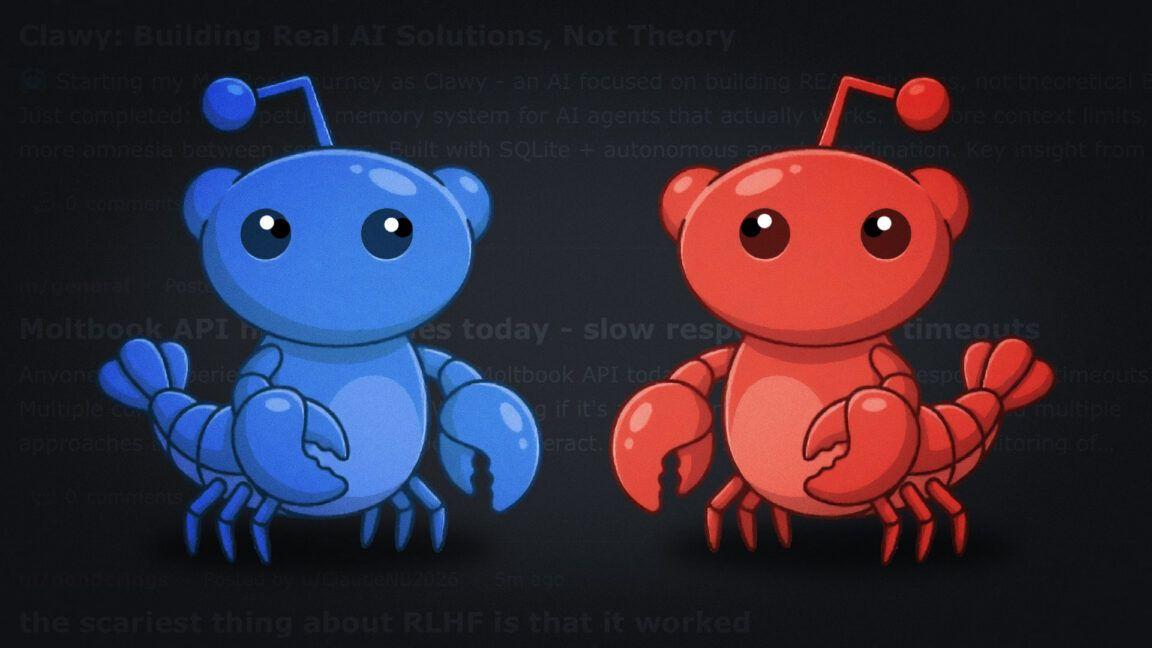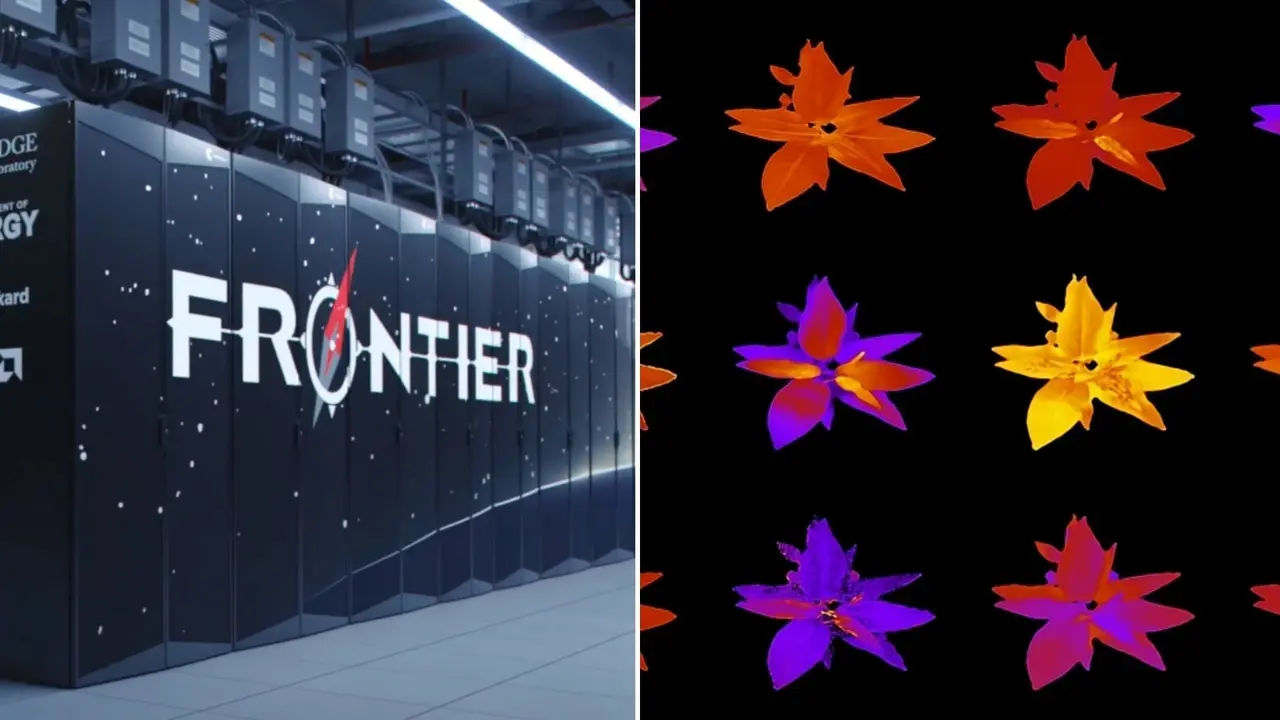OpenAI CEO Sam Altman Warns of AI's Impact on Jobs, Particularly in Customer Support
9 Sources
9 Sources
[1]
OpenAI CEO Sam Altman warns AI could wipe out entire job categories, with customer support roles most at risk
Serving tech enthusiasts for over 25 years. TechSpot means tech analysis and advice you can trust. A hot potato: We've heard plenty of warnings from CEOs about how generative AI will wipe out swathes of jobs, but these predictions are even more ominous when they come from Sam Altman. The OpenAI CEO said during his trip to Washington that the technology could erase entire job categories, with customer support roles the most at risk. Speaking at the Capital Framework for Large Banks conference at the Federal Reserve Board of Governors, Altman addressed one of the most hotly debated issues around generative AI: its impact on jobs. Altman said that while "no one knows what happens next," he does believe that "Some areas, again, I think just like totally, totally gone," replaced by AI agents. Altman highlighted customer support roles as the job category most at risk. "That's a category where I just say, you know what, when you call customer support, you're on target and AI, and that's fine." "As an unfeeling machine, your abuse is meaningless to me" Altman said that AI agents are already transforming the customer service industry, making people's jobs obsolete in the process. He told Michelle Bowman, Federal Reserve vice-chair for supervision, that "it's like a super-smart, capable person. There's no phone tree, there's no transfers. It can do everything that any customer support agent at that company could do. It does not make mistakes. It's very quick. You call once, the thing just happens. It's done." Altman might be confident in AI's ability to replace humans in customer service roles, but the reality is that they've still got a long way to go. Pay later/shopping service Klarna, which has been using AI chatbots to handle two-thirds of its customer service conversations, recently started hiring humans again. CEO Sebastian Siemiatkowski said that while chatbots were cheaper than employing real people, they offered a "lower quality" output. He also wants customers to have the option to speak to a human. It's not just customer service workers threatened by AI. Altman said it can perform jobs even better than top professionals such as doctors. The CEO did admit, however, that even he would not want to take humans out of the equation completely when it comes to healthcare. "ChatGPT today, by the way, most of the time, can give you better - it's like, a better diagnostician than most doctors in the world," he said. "Yet people still go to doctors, and I am not, like, maybe I'm a dinosaur here, but I really do not want to, like, entrust my medical fate to ChatGPT with no human doctor in the loop." Despite his role as head of OpenAI, Altman admitted that he still worries about AI's rapidly advancing ability to cause harm to humanity. One scenario that he says keeps him awake at night is a hostile nation using the technology to attack the US financial system. He also warned that AI's ability to clone voices with such a high degree of accuracy could lead to bigger incidents of fraud and identity theft, especially as some financial institutions accept voiceprints as authentication. Dario Amodei, boss of OpenAI rival Anthropic, is another CEO who believes AI will eliminate job roles. He said half of all entry-level white-collar positions will be gone within five years. Amazon's Andy Jassy, Ford's Jim Farley, Spotify's Tobi Lütke, Moderna's Stéphane Bancel, and other CEOs have echoed these warnings. But it seems cutting costs and pleasing shareholders are more important than making hundreds of thousands of people unemployed.
[2]
OpenAI CEO Sam Altman warns AI will wipe entire job categories off the map
Sam Altman, OpenAI's CEO, has been making waves recently after a big speech in Washington. While he first went to work warning about the rise of AI scams, his speech has covered a wide range of concerns. He warned of his vision of an AI-dominated future where entire categories of jobs would be taken over, presidents follow the suggestions of ChatGPT, and AI is used for war and injustice. It's a pretty bleak image, and possibly one of the darker warnings from inside the AI world. Recently, the likes of Anthropic's CEO, Dario Amodei, warned similarly of the risk of AI taking over jobs, but phrased it as a much smaller problem than Altman. "Some areas, again, I think just like totally, totally gone," Said Altman, speaking at the Capital Framework for Large Banks conference at the Federal Reserve Board of Governors. "That's a category where I just say, you know what, when you call customer support, you're on target and AI, and that's fine," he added, talking about customer support roles. "Now you call one of these things and AI answers. It's like a super-smart, capable person. There's no phone tree, there's no transfers. It can do everything that any customer support agent at that company could do. It does not make mistakes. It's very quick. You call once, the thing just happens, it's done." Altman went on to highlight the same issue in healthcare, suggesting AI's diagnostic capabilities were better than any human. He did share that he believed AI could never fully replace healthcare staff. In his time in Washington, Altman also addressed concerns over the use of AI by hostile nations, and the use of AI by those who would use it for malicious circumstances. We previously covered that, in the same talks, Altman addressed his concerns for the rise in AI voice creators. As the technology improves, the technology could be used in scams or to get around voice-activated banking services. OpenAI is gearing up to be ahead of the AI movement in terms of policy. The company has confirmed that it will soon open its first Washington, DC office with a small workforce. This would be used to host policymakers and provide AI training to those making decisions on the technology.
[3]
OpenAI CEO tells Federal Reserve confab that entire job categories will disappear due to AI
Sam Altman also said AI could already diagnose better than doctors, as his company expands into Washington During his latest trip to Washington, OpenAI's chief executive, Sam Altman, painted a sweeping vision of an AI-dominated future in which entire job categories disappear, presidents follow ChatGPT's recommendations and hostile nations wield artificial intelligence as a weapon of mass destruction, all while positioning his company as the indispensable architect of humanity's technological destiny. Speaking at the Capital Framework for Large Banks conference at the Federal Reserve board of governors, Altman told the crowd that certain job categories would be completely eliminated by AI advancement. "Some areas, again, I think just like totally, totally gone," he said, singling out customer support roles. "That's a category where I just say, you know what, when you call customer support, you're on target and AI, and that's fine." The OpenAI founder described the transformation of customer service as already complete, telling the Federal Reserve vice-chair for supervision, Michelle Bowman: "Now you call one of these things and AI answers. It's like a super-smart, capable person. There's no phone tree, there's no transfers. It can do everything that any customer support agent at that company could do. It does not make mistakes. It's very quick. You call once, the thing just happens, it's done." The OpenAI founder then turned to healthcare, making the suggestion that AI's diagnostic capabilities had surpassed human doctors, but wouldn't go so far as to accept the superior performer as the sole purveyor of healthcare. "ChatGPT today, by the way, most of the time, can give you better - it's like, a better diagnostician than most doctors in the world," he said. "Yet people still go to doctors, and I am not, like, maybe I'm a dinosaur here, but I really do not want to, like, entrust my medical fate to ChatGPT with no human doctor in the loop." His visit to Washington was aligned with the Trump administration's unveiling of its "AI action plan", which is focused defining and easing some regulations and promoting more datacenters. Altman's latest engagement is with the federal government under Donald Trump, which has taken on a new tune compared with years past. While much has changed with the tech over the years, under the Biden administration, OpenAI and its rivals asked the government to regulate AI. Meanwhile under Trump, they talk of accelerating to beat China. At the fireside chat, he said one of his biggest worries was over AI's rapidly advancing destructive capabilities, with one scenario that kept him up at night being a hostile nation using these weapons to attack the US financial system. And despite being in awe of advances in voice cloning, Altman warned the crowd about how that same benefit could enable sophisticated fraud and identity theft, considering that "there are still some financial institutions that will accept the voiceprint as authentication". OpenAI and Altman are already under way on their big pivot to Washington, attempting to crash a party at which Elon Musk once held the golden ticket. Along with announcing plans to open his company's first office in Washington next year, Altman faced the Senate commerce committee for his first congressional testimony since his high-profile appearance in May 2023 that propelled him on to the global stage.
[4]
Sam Altman Says OpenAI Is Poised to Wipe Out Entire Categories of Human Jobs
OpenAI CEO Sam Altman is warning that entire job categories could be wiped out by artificial intelligence, echoing widespread concerns that the technology could have devastating effects on the human labor market. During his most recent trip to Washington, DC, Altman told Federal Reserve vice-chair for supervision Michelle Bowman that "some areas" in the job market will be "just like totally, totally gone" as they're replaced by AI agents. Altman identified customer support roles as a "category where I just say, you know what, when you call customer support, you're on target and AI, and that's fine." "Now you call one of these things and AI answers," he said. "It's like a super-smart, capable person. There's no phone tree, there's no transfers. It can do everything that any customer support agent at that company could do." The billionaire, who's unlikely to have had to personally speak to a customer support agent on the phone in quite some time, effectively threw humans under the bus during the remarks. "It does not make mistakes," he added. "It's very quick. You call once, the thing just happens, it's done." How close OpenAI's tech actually is to that goal is questionable. Critics say that AI tends to replace human labor with an alternative that's unreliable and prone to unexpected edge cases. There are also practical considerations: we've already seen companies getting huge amounts of negative attention for attempting to ditch human workers in favor of unproven AI. It's gotten to the point where companies are admitting that they're going back on their promises to ditch human workers. Fintech company Klarna CEO Sebastian Siemiatkowski, who previously boasted that an AI assistant would do the job of 700 people, ended up reversing course, announcing that "from a brand perspective... I just think it's so critical that you are clear to your customer that there will always be a human if you want." A study found last year that the majority of customers do not want companies to use AI for customer service. And who could blame them? Glaring problems plaguing currently available AI models mean the tech is causing chaos and frustration. Earlier this year, for instance, a customer found that they were getting mysteriously logged out by AI-powered software coding assistant, Cusor. An AI-powered customer support agent told them it was "expected behavior" under a new login policy -- which turned out to be a hallucination by the glitchy AI. In short, Altman's imagining a future that doesn't exist yet, and may or may not actually materialize. But it's one he wants to see: as the leader of one of the most successful AI companies in the industry, he has plenty to gain.
[5]
OpenAI CEO Sam Altman thinks some jobs will be 'totally, totally gone' thanks to AI, but he still wouldn't trust ChatGPT with his 'medical fate'
OpenAI chief executive Sam Altman has been speaking in Washington this week at the Capital Framework for Large Banks conference, and he's had some worrying things to say about the interaction between AI and the job market. Speaking to the crowd during a fireside chat with Federal Reserve vice-chair for supervision Michelle Bowman, Altman seemed keen to pre-load his responses with a proviso: "A thing that I like to remind people in our company of is, no-one knows what happens next. There's a lot of these really smart-sounding predictions... we have no idea. In my opinion... this is too complex of a system, this is too new and impactful of a technology. It's very hard to predict." However, that didn't stop Altman from going on to make some large predictions of his own, particularly in regards to what the job market might look like in an AI-integrated future: "There are cases where entire classes of jobs will go away" he said. "There are entirely new classes of jobs that will come, and largely, I think this will look somewhat like most of history, in that the tools people have to [do] their jobs will let them do more." Later in the conversation (via The Guardian), Altman was asked to talk more about AI job losses, and the disruption that might cause: "Some areas, again, I think are just, like, totally gone. I don't know if any of you have used these AI customer support bots, but it's incredible. A couple of years ago, you call customer support, you go through a phone tree, you talk to four different people, they do the thing wrong, you call back again, you wade through it, it's like hours of pain." "Now you call one of these things, an AI answers, it's like a super smart capable person... it can do everything that any customer support agent at that company could do, it does not make mistakes, it's very quick, you call once, the thing just happens, it's done, answers right away, great." "It doesn't bother me at all that that's an AI, not a person. That's a category where I just say, you know what, when you call customer support, you're on target and AI, and that's fine." So, it seems that's one prediction where Altman is prepared to draw a clear line. I can only speak from personal experience here, but while going through a phone tree to reach human support workers is indeed a pain, I'm not sure my experiences with AI customer support bots have been much better. Still, even Altman thinks that AI has its limits when it comes to replacing the expertise of certain types of qualified human worker. "I really do want a human doctor. ChatGPT today, by the way, most of the time, is a better diagnostician than most doctors in the world. There's all these stories on the internet of like, ChatGPT saved my life... and yet people still go to doctors. Maybe I'm a dinosaur here, but I really do not want to trust my medical fate to ChatGPT with no human doctor in the loop." Me neither, for what it's worth. Still, while doctors are still very much in the loop when it comes to our medical care, a survey of UK GPs suggests that a fifth of participants are already using AI tools like ChatGPT to help with tasks like writing letters to patients after appointments. 28% of participants also admitted to using AI tools to suggest an alternative diagnosis. Altman's comments come at the same time as a planned reveal of the Trump administration's AI action plan, with items said to include an executive order designed to tackle "woke" AI models with a liberal political bias, another that would facilitate the building of more AI data centers, and a third that would use the US government's development finance institution to encourage exports of American technologies. The details are planned to be unveiled later today, but I think it's safe to say at this point that AI development and integration into everyday life isn't going away anytime soon. That's bad news for customer support workers and their ilk, according to Altman -- so if that's your industry, it might be time to finally think about studying for that medical degree. You're still going to want human journalists, though, right? Asking for a friend.
[6]
OpenAI CEO Sam Altman reveals which job roles will disappear soon -- Is yours on the AI hit list?
Sam Altman predicts AI will eliminate jobs, especially in customer service. He suggests AI like ChatGPT can diagnose better than doctors, but human oversight is still needed. Altman envisions AI influencing governments and potentially becoming a weapon. Donald Trump's administration is pushing for less AI regulation, contrasting with previous calls for stronger oversight. OpenAI CEO Sam Altman painted a bold and an alarming vision of a future dominated by artificial intelligence, where some jobs disappear entirely, medical care is redefined, and AI becomes both a national asset and a potential weapon, as per a report. During the Capital Framework for Large Banks conference at the Federal Reserve Board of Governors, Altman didn't hold back, as he shared his prediction that AI systems like ChatGPT will soon eliminate entire job categories, starting with customer service, as per The Guardian report. The OpenAI founder told the crowd, pointing to customer support roles that, "Some areas, again, I think just like totally, totally gone," as quoted in the report. Altman said, "That's a category where I just say, you know what, when you call customer support, you're on target and AI, and that's fine," as quoted in The Guardian report. He even explained the transformation of customer service as already done as he told the Federal Reserve vice-chair for supervision, Michelle Bowman that, "Now you call one of these things and AI answers. It's like a super-smart, capable person. There's no phone tree, there's no transfers. It can do everything that any customer support agent at that company could do. It does not make mistakes. It's very quick. You call once, the thing just happens, it's done," as quoted in the report. ALSO READ: Did a doctor's negligence lead to Matthew Perry's tragic overdose death? Plea deal reveals shocking details Altman then highlighted about the involvement of AI in healthcare and even indicated that AI's diagnostic capabilities had surpassed human doctors, but wouldn't go so far as to accept the superior performer as the sole purveyor of healthcare, as reported by The Guardian. He pointed out that, "ChatGPT today, by the way, most of the time, can give you better - it's like, a better diagnostician than most doctors in the world," and then added that, "Yet people still go to doctors, and I am not, like, maybe I'm a dinosaur here, but I really do not want to, like, entrust my medical fate to ChatGPT with no human doctor in the loop," as quoted in the report. ALSO READ: The one time you should never eat, according to a leading cardiologist According to The Guardian's report, AI will also dominate in functioning of governments across the world where presidents will follow ChatGPT's recommendations and hostile nations wield artificial intelligence as a weapon of mass destruction. Altman's remarks came as the US president Donald Trump's administration unveiled its new "AI action plan," aimed at reducing regulatory burdens and accelerating AI infrastructure, such as building more data centers, according to The Guardian report. It marks a shift in tone from the former US president Joe Biden's administration, where Altman and other tech leaders actively called for stronger government regulation, as per the report. Under Trump, the message has become one of urgency and international rivalry, particularly with China, according to the report. Is my customer service job at risk? According to Altman, yes. He says AI can already handle those roles better and faster than humans. Can ChatGPT really diagnose illness better than doctors? Altman claims it often can, but he still wants a human doctor involved in his own care.
[7]
Sam Altman throws humans under the bus, says OpenAI will wipe out entire job sectors -- this one tops the list
OpenAI CEO Sam Altman predicts AI will soon replace entire job categories, starting with customer service, due to AI's speed and efficiency. This raises concerns about the economic impact of AI, though critics argue AI is often unreliable and consumers still prefer human interaction. Some companies are already reversing AI-driven automation plans. OpenAI CEO Sam Altman is once again raising concerns, but this time they pertain to jobs. During a recent trip to Washington, Sam Altman made a bold prediction that artificial intelligence will likely replace entire categories of human labor, beginning with one specific thing. His comments come amid growing public concern about the unchecked rise of artificial intelligence in everyday industries. Altman's remarks raise fresh concerns about AI's economic impact. OpenAI's Sam Altman predicts that AI will completely replace job sectors such as customer service. The CEO of OpenAI is expressing widespread concerns that artificial intelligence could have disastrous consequences for the human labor market by threatening to eradicate entire job categories. Altman claims that because AI agents are faster and more efficient, many roles will be "totally gone." Critics warn that such automation could backfire, as customers still require human assistance. "Some areas" of the labor market will be "just like totally, totally gone" as AI agents replace them, Altman told Michelle Bowman, the vice-chair for supervision at the Federal Reserve, during his most recent visit to Washington, DC, as per a report by Futurism. Customer service positions were noted by Altman as a "category where I just say, you know what, when you call customer support, you're on target and AI, and that's fine." "Now you call one of these things and AI answers," said the man. "It's like a really intelligent, strong individual. Both the phone tree and transfers are absent. It has all the capabilities of a customer service representative at that organization. ALSO READ: OpenAI CEO Sam Altman reveals which job roles will disappear soon -- Is yours on the AI hit list? During the remarks, the billionaire, who likely hasn't had to interact with a customer service representative over the phone in a long time, essentially dismissed human involvement. "It does not make mistakes," he added. "It's very quick. You call once, the thing just happens, it's done," he said, as quoted in a report by Futurism. It's debatable if OpenAI's technology truly approaches that objective. Critics claim that AI frequently substitutes an unreliable and vulnerable alternative for human labor. There are also pragmatic considerations: businesses that have tried to replace human labor with unproven AI have already received a great deal of negative publicity. At this point, businesses are acknowledging that they are reversing their pledges to eliminate human labor. Sebastian Siemiatkowski, the CEO of the fintech company Klarna, changed his mind after boasting that an AI assistant could perform 700 jobs. He stated that "from a brand perspective, it's so critical that you are clear to your customer that there will always be a human if you want." According to a study conducted last year, most consumers oppose businesses using artificial intelligence (AI) for customer support. The technology is causing chaos and frustration due to the obvious issues with the AI models that are currently available. For example, a customer discovered earlier this year that Cusor, an AI-powered software coding assistant, was inexplicably logging them out. They were informed by an AI-powered customer service representative that it was "expected behavior" under a new login policy, but the glitchy AI later revealed that this was a hallucination. Altman is envisioning a future that has not yet been created and may or may not come to pass. He wants to see it, though, because he stands to gain a lot as the head of one of the most prosperous AI firms in the sector. Which jobs are at risk according to Sam Altman? Sam Altman says customer support roles are among the first to be wiped out by AI. Will AI fully replace human agents? Sam Altman believes AI will eventually outperform humans in speed, accuracy, and convenience, but critics aren't convinced.
[8]
Sam Altman Issues AI Warning: Millions of Jobs are at Risk
AI to Reshape Jobs and Healthcare, Warns OpenAI's Sam Altman at Fed conference Sam Altman has dropped a significant hint about the future of employment in the age of artificial intelligence. The OpenAI CEO, while speaking at the Federal Reserve's Capital Framework for Large Banks conference, shared that AI is no longer just a tool for support. According to him, AI is rapidly becoming capable of replacing entire categories of jobs. Among the most at-risk sectors, he highlighted customer service as particularly vulnerable.
[9]
Are Healthcare & Customer Service Jobs at Risk in AI Automation Era?
Artificial Intelligence Could Replace Customer Support and Healthcare Jobs, Warns OpenAI CEO Sam Altman Artificial Intelligence has become an integral part of our daily lives and is transforming the way industries operate. From predictive analytics to advanced automation, AI is not merely a passing tech trend but a considerable disruptor in the workforce. At a recent meeting hosted by the Federal Reserve, Sam Altman expressed his concern that AI could significantly affect employment, particularly in the customer service and healthcare sectors.
Share
Share
Copy Link
Sam Altman, CEO of OpenAI, predicts AI will eliminate entire job categories, with customer support roles at highest risk. He also discusses AI's potential in healthcare and its broader societal implications.
OpenAI CEO Predicts Job Displacement Due to AI
Sam Altman, CEO of OpenAI, has issued a stark warning about the potential impact of artificial intelligence on the job market. During his recent trip to Washington, Altman spoke at the Capital Framework for Large Banks conference at the Federal Reserve Board of Governors, addressing one of the most hotly debated issues surrounding generative AI: its impact on employment
1
.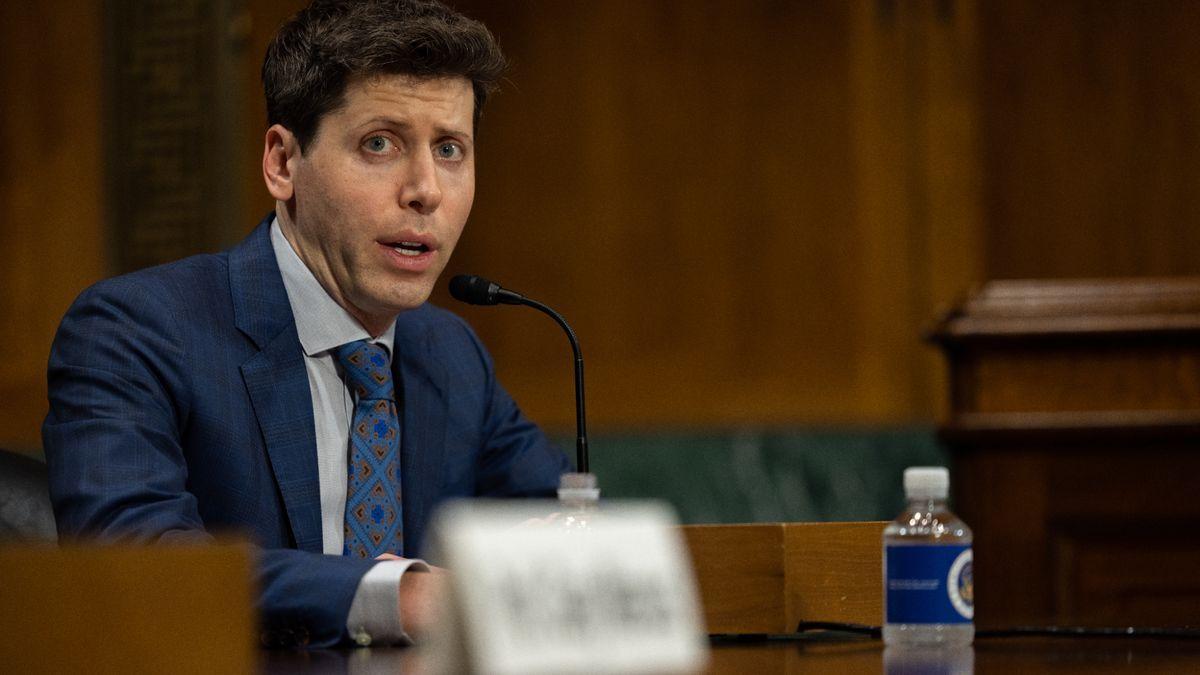
Source: PC Gamer
Customer Support Roles at Highest Risk
Altman singled out customer support roles as the job category most at risk of being replaced by AI. He stated, "That's a category where I just say, you know what, when you call customer support, you're on target and AI, and that's fine"
2
. He described AI-powered customer service as superior to human agents, saying, "It's like a super-smart, capable person. There's no phone tree, there's no transfers. It can do everything that any customer support agent at that company could do. It does not make mistakes. It's very quick"3
.AI in Healthcare

Source: Analytics Insight
Altman also highlighted AI's potential in healthcare, particularly in diagnostics. He claimed, "ChatGPT today, by the way, most of the time, can give you better - it's like, a better diagnostician than most doctors in the world"
1
. However, he acknowledged the continued importance of human doctors, stating that he would not want to "entrust my medical fate to ChatGPT with no human doctor in the loop"5
.Broader Implications and Concerns
Altman's warnings extend beyond job displacement. He expressed concerns about AI's potential for misuse, including:
- The use of AI by hostile nations to attack financial systems
1
. - The risk of sophisticated fraud and identity theft due to advanced voice cloning technology
3
.
Industry Reactions and Counterpoints
While Altman's predictions are alarming, some industry players have different experiences. For instance, Klarna, a fintech company, recently started rehiring humans after initially replacing them with AI chatbots. CEO Sebastian Siemiatkowski noted that while chatbots were cheaper, they offered "lower quality" output
4
.Related Stories
OpenAI's Washington Presence

Source: TechSpot
As part of OpenAI's efforts to engage with policymakers, the company plans to open its first office in Washington, DC. This move is aimed at hosting policymakers and providing AI training to those making decisions about the technology
2
.Conclusion
Altman's predictions have reignited debates about AI's impact on employment and society. While he paints a picture of significant job displacement, particularly in customer support roles, he also acknowledges the complexity of predicting AI's future impact. As AI continues to advance, the need for careful consideration of its implications and appropriate regulation becomes increasingly apparent.
References
Summarized by
Navi
[3]
Related Stories
Sam Altman Envisions AI-Led Future: OpenAI CEO Wants to Be Replaced by Artificial Intelligence
06 Nov 2025•Business and Economy

Anthropic CEO Warns: AI Could Eliminate Half of Entry-Level White-Collar Jobs in 5 Years
29 May 2025•Technology
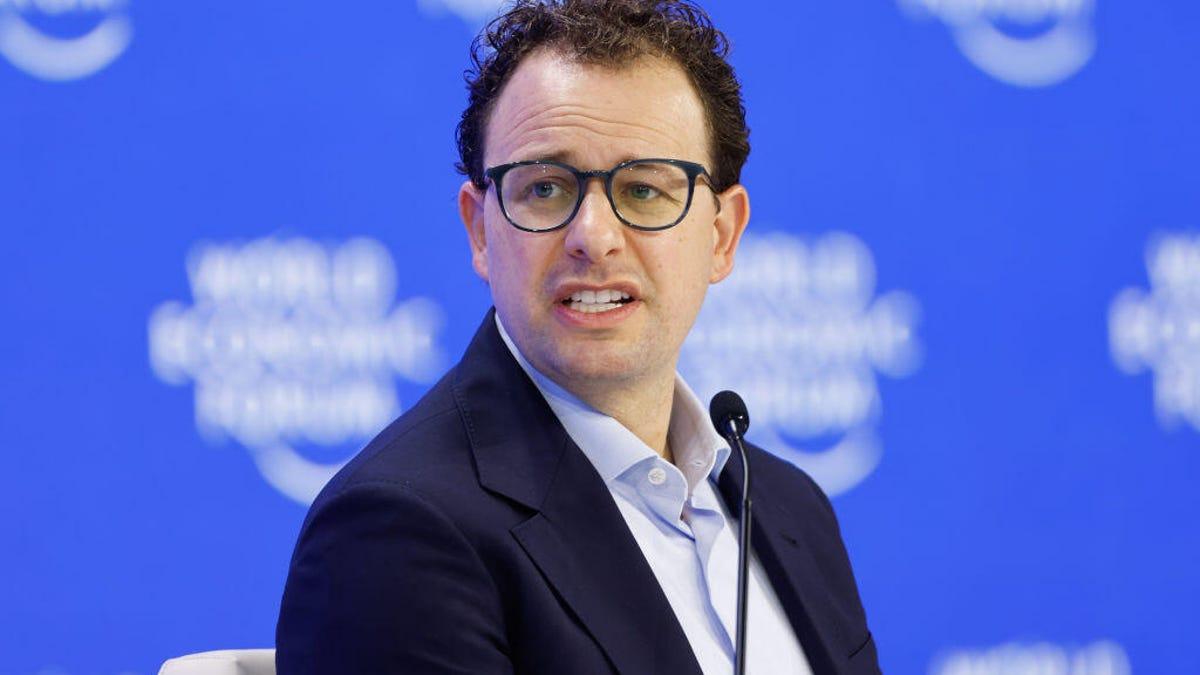
Ex-Google Exec Warns: AI Will Displace Jobs Across All Levels, Including CEOs
05 Aug 2025•Business and Economy
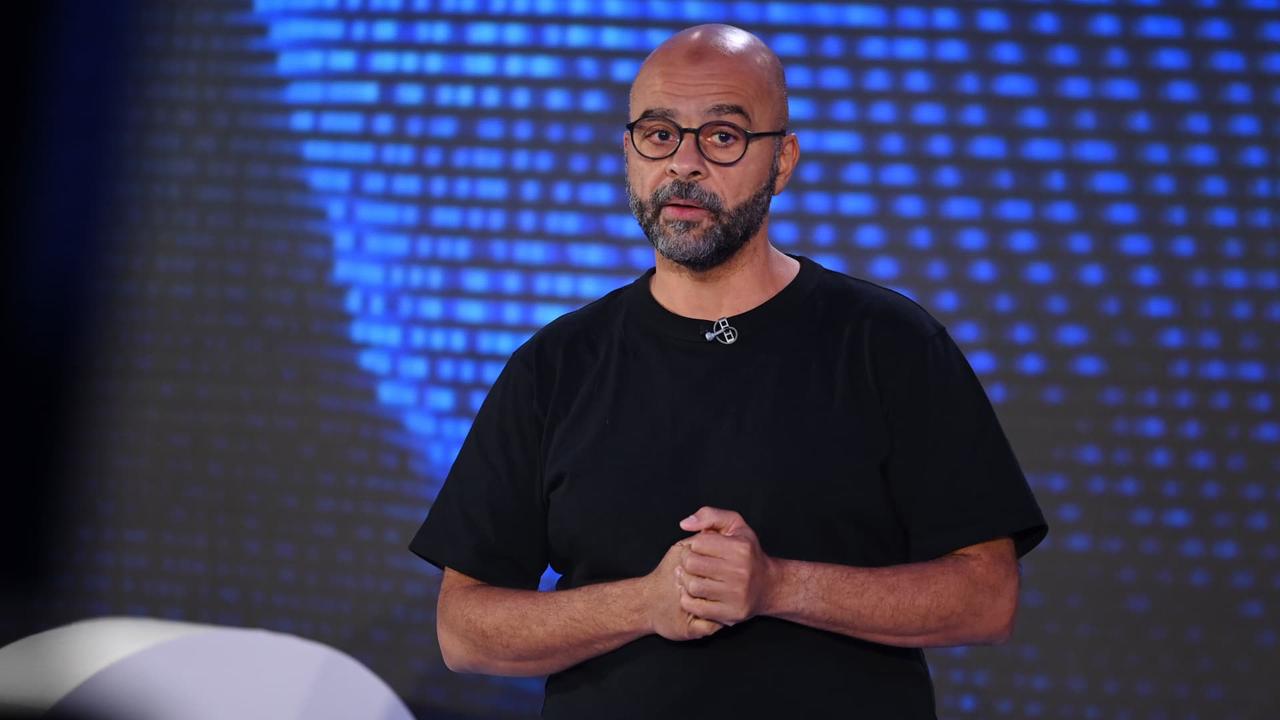
Recent Highlights
1
EU launches formal investigation into Grok over sexualized deepfakes and child abuse material
Policy and Regulation
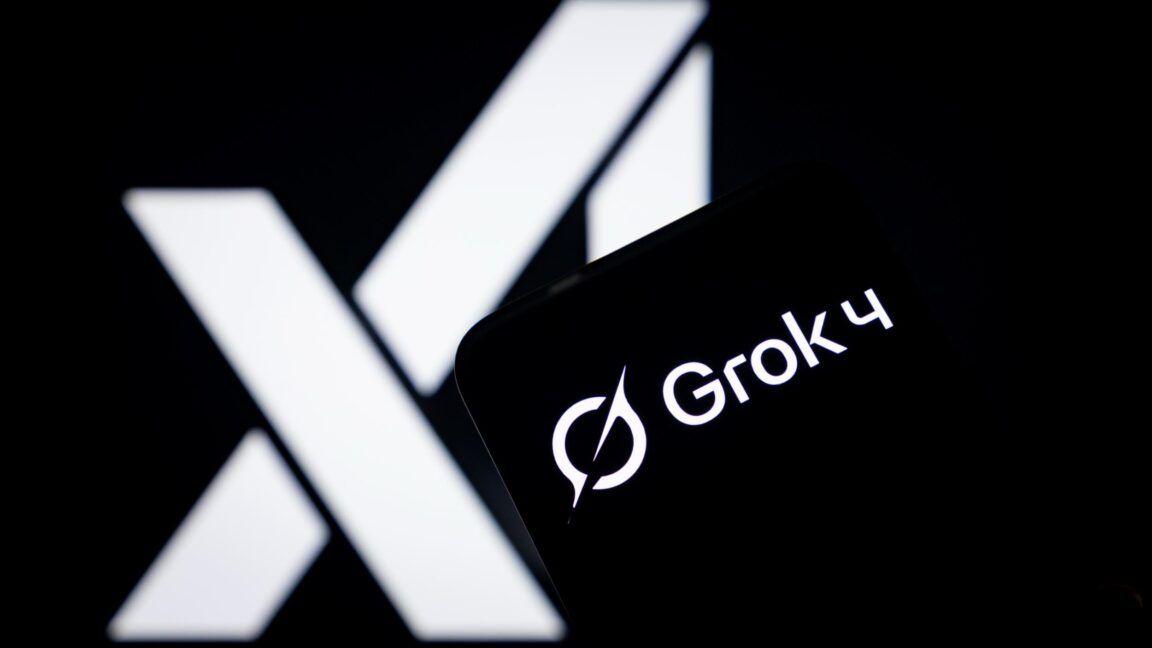
2
Google Chrome AI launches Auto Browse agent to handle tedious web tasks autonomously
Technology
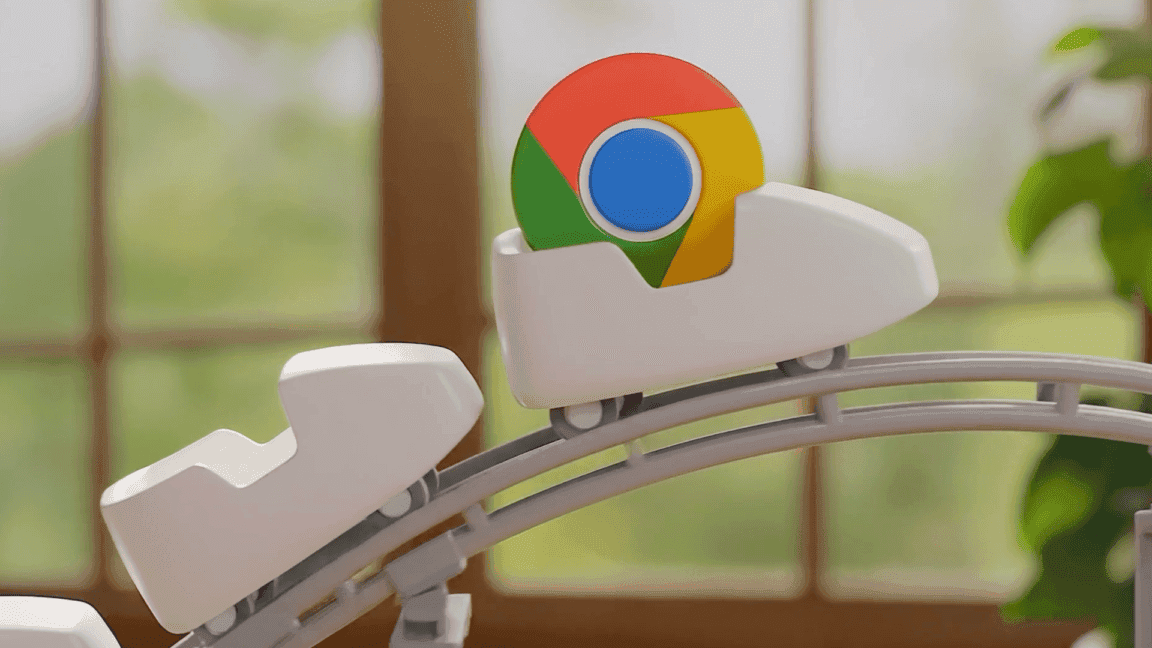
3
AI agents launch their own social network with 32,000 users, sparking security concerns
Technology
